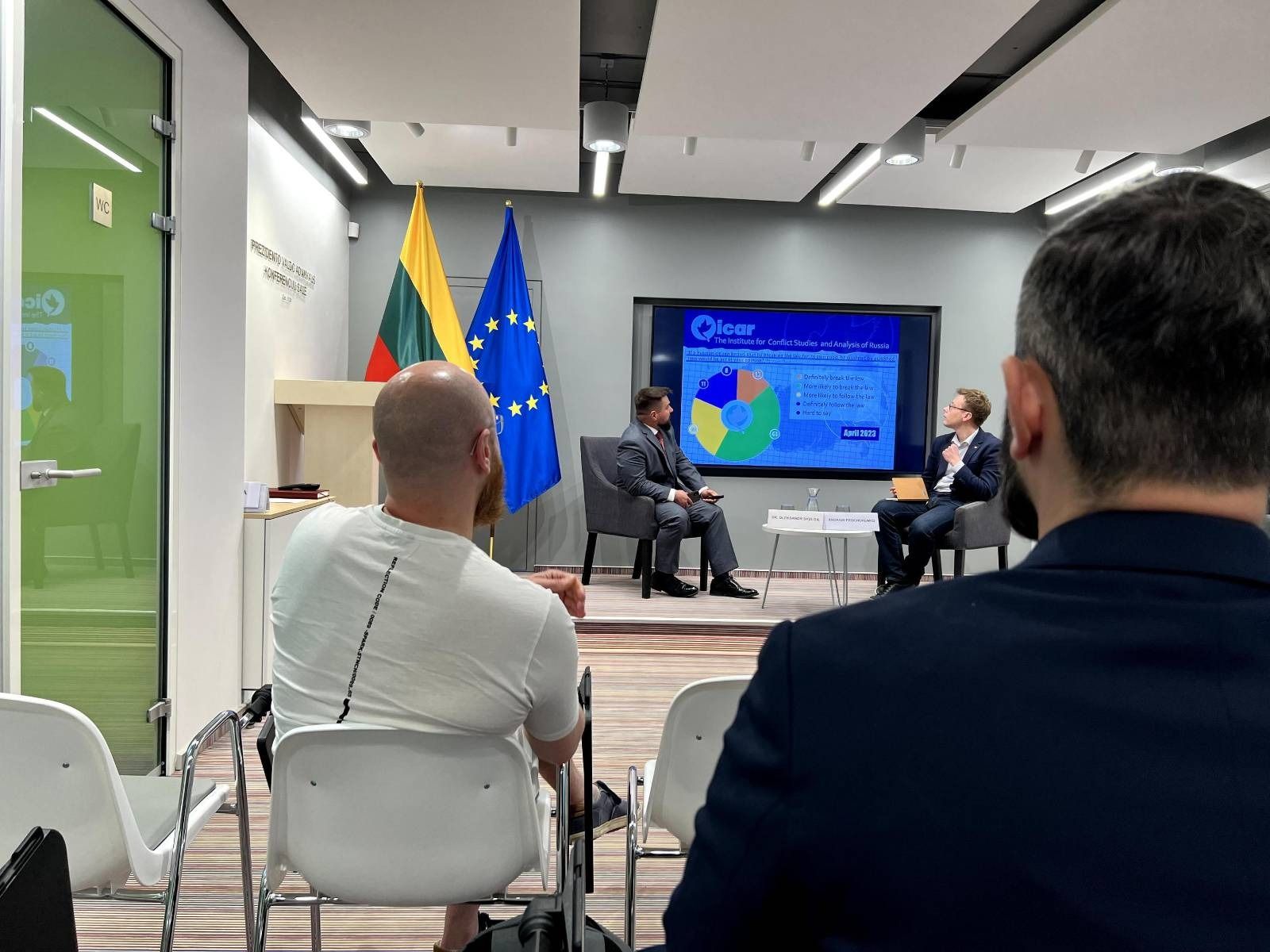
Discussion of the IKAR study «Mirror of Russia» took place at the Eastern Europe Studies Center
01/06/2023, 09:00
On May 23, 2023, a thought-provoking discussion titled "Russian Public and the War on Ukraine: newest data" took place in the welcoming premises of the Center for Eastern European Studies in Vilnius.
The event brought together a diverse range of attendees, including experts, military analysts, public figures, diplomats, and media representatives.
During the discussion, Dr. Alexander Shulga, the director of the Institute of Conflict Studies and Analysis of Russia (IKAR), presented the findings of a sociological study examining the attitudes of Russian society towards the ongoing war with Ukraine.

The study, known as the "Mirror of Russia," conducted by IKAR since December 2022, revealed the existence of conflicting beliefs within Russian society. Despite perceiving themselves and Ukrainians as part of the same nation, Russians display a lack of empathy towards Ukrainians, evident in their indifference towards missile strikes on their neighboring country.
The moral justification of the war, seen as a means to preserve and assert unity, is deeply ingrained in the Russian psyche, as they perceive Ukraine as their own territory. Notably, the majority of Russians do not consider themselves personally responsible for the war and consider themselves apolitical. This perception of war and the phenomenon of "split consciousness" within Russian society serve the interests of the government, enabling them to present vague and ever-changing goals as needed.

Alongside the study's findings, participants expressed keen interest in the methodology employed to ensure the acquisition of high-quality data.
Discussants were impressed not only by the extensive and rigorous sampling, as well as scientific analytical methods, but also by the thorough training of interviewers. These interviewers, operating from within Ukraine, conducted surveys of Russians in a manner that convinced respondents they were being interviewed by local research centers.
The event, which lasted for an hour and a half, proved to be insufficient for some participants to address all their questions, given the rich and engaging discussions that took place.




